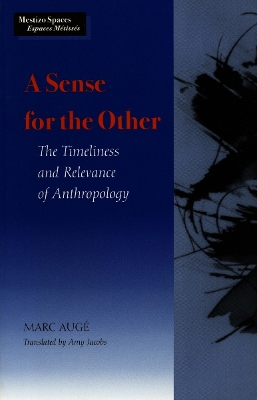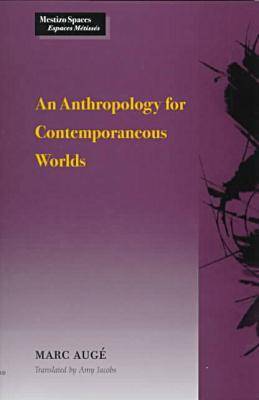Mestizo Spaces / Espaces Metisses
2 total works
If the end of exoticism is one of the characteristics of our time, and if classical anthropology based its study of alterity on this exotic distance from the other, is anthropology still possible, and if so, to what end? The author uses these questions as a point of departure for a probing interrogation of ethnological practice, starting with Lévi-Strauss.
For several years, the author has advocated an anthropology of “proximity” in place of the usual anthropology of distance. He has studied such emblematic places of Western modernity as the Parisian Metro, or such emblematic “non-places” as airports or freeways, treating as valid anthropological objects phenomena that others might judge less “pure” or “significant” than systems of filiation or matrimonial alliance. The proper place of the ethnographer, he argues, is sufficiently distanced to comprehend a system as a system, yet participatory enough to live it as an individual. How can one best arrive at such a place?
This book answers by outlining an approach to anthropology that focuses on negotiating the social meanings we and others use in making sense of the world, and on the processes of identification that create the difference between same and other. Why trace a line of demarcation between societies thought to warrant and require anthropological observation and others (namely, our own) thought to demand a different type of study? Once anthropology, through its study of rites, takes social meaning as its principal object, the necessity for a “generalized anthropology” that includes the entire planet seems obvious, especially in view of the rapid proliferation of new networks of communication and the integration of individuals into those networks.
Positioned in opposition not only to political theories of universalization and uniformization more or less tied to the theme of "the end of history," but also to "postmodernist" versions of anthropological theories of multiplicity and relativism, the author argues that social anthropology, through its self-critical tradition, is fully capable of adapting to the accelerated change that is continuously recomposing relations between universalism and particularisms. It is for social anthropology to select, analyze, and understand the new modes of sociality and the new spaces in which (not without calamities and contradictions) these utterly new recompositions, a major aspect of our contemporary world, manifest themselves.

